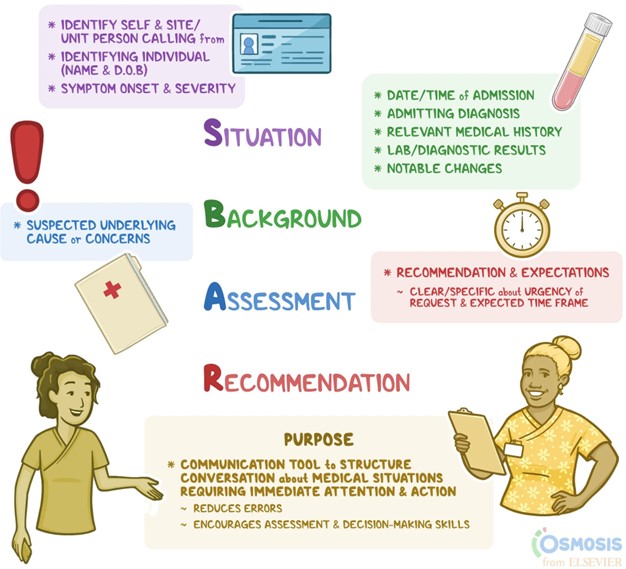The nurse is preparing to send a client to the cardiac catheterization lab for an angioplasty. Which client report is most important for the nurse to explore further prior to the start of the procedure?
Drank a glass of water in the past 2 hours.
Reports left chest wall pain prior to admission.
Experiences facial swelling after eating crab.
Verbalizes a fear of being in a confined space.
The Correct Answer is C
The correct answer is: C. Experiences facial swelling after eating crab.
Choice A Reason: Drinking a glass of water in the past 2 hours is not typically a concern unless the patient has been instructed to fast. For most cardiac catheterization procedures, patients are asked to fast for a certain period before the procedure to reduce the risk of aspiration. However, small sips of water may be allowed with medications.
Choice B Reason: While reports of left chest wall pain are clinically significant and warrant investigation, they are not as immediately concerning for the angioplasty procedure itself. Chest pain is a symptom that may have led to the decision to perform angioplasty but does not pose an immediate risk of complication during the procedure as an allergy might.
Choice C Reason: As previously mentioned, experiencing facial swelling after eating crab is indicative of a shellfish allergy. This is important because the contrast dye used in angioplasty may contain iodine, and patients with shellfish allergies could have an increased risk of an allergic reaction to the iodine in the dye. It is essential to explore this further to take necessary precautions, such as premedication with antihistamines or using a different contrast agent.
Choice D Reason: Verbalizing a fear of being in a confined space, or claustrophobia, is a psychological concern that should be addressed to ensure the patient’s comfort during the procedure. However, it does not pose a direct risk to the safety of the angioplasty procedure like an allergic reaction does. Managing patient anxiety is important, but it is not the most critical factor to explore prior to the procedure.
Nursing Test Bank
Naxlex Comprehensive Predictor Exams
Related Questions
Correct Answer is D
Explanation
Situation: Increasing confusion of the client.
The nurse should start by providing the current situation, which is the client's increasing confusion. This is crucial information as it indicates a change in the client's condition and may require immediate attention.
Background: Fall at home as reason for admission.
Next, the nurse should provide the background information, which includes the reason for admission, in this case, the fall at home. This helps the healthcare provider understand the context and potential contributing factors to the client's current condition. Assessment: Currently prescribed medications.
After providing the background, the nurse should discuss the assessment findings. In this case, it would be appropriate to mention the client's currently prescribed medications. This information can help the healthcare provider assess for any medication-related issues or interactions that could be contributing to the client's confusion.
Recommendation: Client's healthcare power of attorney.
Lastly, the nurse should provide the recommendation, which in this case is the client's healthcare power of attorney. This information is important as it identifies the designated decision-maker for the client's healthcare decisions and can assist the healthcare provider in involving the appropriate person in the care planning process.

Correct Answer is D
Explanation
The presence of purulent drainage at the wound indicates a potential infection, and monitoring the client's WBC count is an important laboratory value to assess for signs of infection. An elevated WBC count, specifically an increase in the neutrophil count (neutrophilia), can indicate an active infection and provide important information for the healthcare provider when evaluating the wound.
While hematocrit, platelet count, and creatinine level are essential laboratory values to assess the client's overall condition, they may not provide specific information regarding the presence of infection or purulent drainage at the wound site.
Whether you are a student looking to ace your exams or a practicing nurse seeking to enhance your expertise , our nursing education contents will empower you with the confidence and competence to make a difference in the lives of patients and become a respected leader in the healthcare field.
Visit Naxlex, invest in your future and unlock endless possibilities with our unparalleled nursing education contents today
Report Wrong Answer on the Current Question
Do you disagree with the answer? If yes, what is your expected answer? Explain.
Kindly be descriptive with the issue you are facing.
